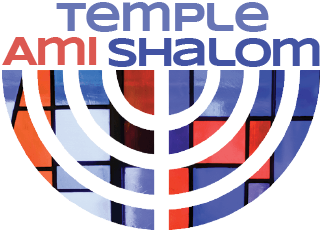Shavua tov to all!!
Even during the most distressing of times, being able to find an opportunity to study and learn Torah gives a break from whatever is going on and allows us to focus on our tradition and to learn together.
This week’s Torah portion, Naso, is the longest parasha in the Torah!! Among the many, varied topics in Naso, the following are included:
-the second census of the Levites
-purification of the Camp
-the Priest of Choice
-the Suspected Adultress
-the Law of the Nazarite
-the Priestly Blessing
-and, the Final Preparations of the Tabernacle…
Where to begin? I’ll begin with one of the more interesting and also obscure parts of the Torah, the Law of the Nazarite. Most of us are familiar with the story of Samson, who is described as a Nazarite, in the Book of Samuel, but other than Samson we do not have any other specifically named Nazarite? And, Samson declared himself a Nazarite for life. So, what is the Nazirite about?
The Nazir, a man or woman, who vows to stop drinking any wine or other liquor and to stop eating grapes during that time. They must not cut their hair during that time. A Nazarite cannot come into contact with any person who has died and is not to go to a funeral for anyone, even his or her own family. The Nazir is also given the opportunity to speak with one of the Priests. Once the Nazir completes their committed time, they bring a special sacrifice to the Tent of Meeting to be offered to signify the end of their Nazarite vow.
So, what is this all about? I think that this example of the Nazarite is a very compelling example of what we would call today getting help for an addictive behavior or uncontrollable feelings. How insightful this example is and how profound…the understanding that people, many people, have addiction to many different things in their lives. Or, have uncontrollable feelings that need to be controlled. They are not separated from society, but they are offered the opportunity to deal with their challenges in their lives, deal with them and remain parts of our society. It took a very long time for our own society to become comfortable with people who needed to deal with their addiction to liquor. And then drugs. And then other challenging mental and emotional conditions. Today we have very specific groups AA and others that help people with their addictive challenges.
To look back to Biblical times and see this rare opportunity to help people with challenges in their lives is truly wonderful.
Immediately following the lesson of the Nazrite, we come upon perhaps the most popular and well-known passages in the Torah, the Priestly Blessing, Birkat Kohanim, “May the Lord bless you and protect you. The Lord deal kindly and graciously with you. The Lord bestow His favor upon you and grant you peace”. This blessing was pronounced daily by the Priests to bless the Israelite people. Today, we include these meaningful words in the Amidah, every morning and afternoon and whenever we add an additional Amidah on Shabbat and holidays. Since the destruction of the Temples in 586BCE and 70 CE, we no longer have the Temple priests to bless us every day. Today, in Orthodox communities, the descendants of the Kohanim, the Priests, gather at the front of the synagogue, they cover their heads with their tallit, they spread their fingers as the Priests did in the Temple, and then they recite the Birkat Kohanim on behalf of the community. In other communities, the Cantor chants these words if the Amidah is davened quietly and then repeated aloud.We also include these beautiful phrases at Bar or Bat Mitzvahs and at weddings under the chuppah.
We will continue to discuss these and other aspects of Parashat Naso on Shabbat morning.
I pray that we will all have a peaceful week ahead. Please know that I and Cantor Mike and our dear President, Derek Harris are all here if you need assistance in any way.
